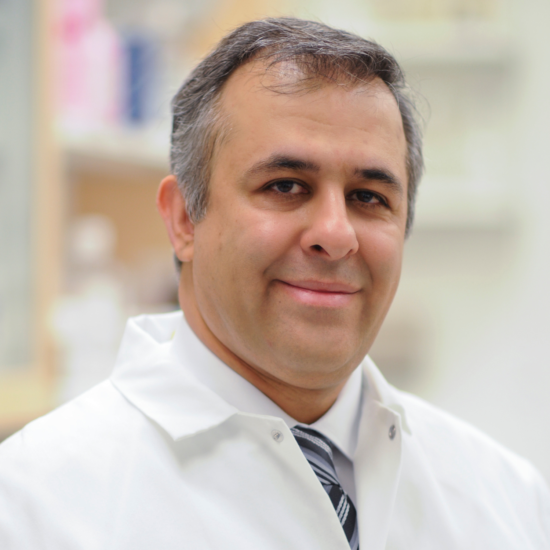
George Mason University Associate Professor of Infectious Diseases and Microbiology, Ramin M. Hakami recently received $265,000 to research natural mechanisms of boosting the immune response.
The natural immunity effort will build on prior funded research on use of processed COVID-19 patient samples to explore natural mechanisms that are available to fight and protect against COVID-19 infection.
The Hakami Lab, within Mason’s School of Systems Biology, has deep experience and demonstrated expertise in this research, previously contributing to development of the Respiratory Detox Shot to inhibit SARS-CoV-2 and the Influenza A virus in vitro, as well as extensive work on the role of extracellular vesicles during infection with SARS-CoV-2 virus. In addition to Hakami, the research project team will include Farhang Alem, Assistant Director of Scientific Operations within Mason’s Center for Infectious Disease Research (CIDR) and Interim Director of Mason’s Level-3 Biomedical Research Laboratory (BRL) as well as laboratory technicians, and Mason students from Hakami’s research group trained in the various components of the project research requirements.
“Our work will build on findings from the funding group’s prior in vitro studies, initial animal experiments, plus overseas clinical trials,” said Hakami. “So far, their results from these human clinical trials suggest that processed COVID-19 patient samples have the ability to boost the immune system to help protect against COVID-19 infection,” Hakami explained.
Over a two-year period, the team will focus on two areas: first identifying the mechanism by which this material actually boosts the immune system to fight off infection. The other aspect, which is much more challenging to decipher, is to find out the components within this material that is giving the immune system boost.
Another aspect of the research also piques Hakami’s scientific curiosity, since his lab seeks to understand how extracellular vesicles that are released from cells regulate immune response to infection. “We will also be looking to see whether the processed patient samples carry extracellular vesicle components that may also be, at least in part, contributing to this immune activation,” Hakami said.
“Mason Science researchers often form multidisciplinary teams to collaborate on different phases of complex, challenging research like this,” said Mason College of Science Dean, Fernando Miralles-Wilhelm.
In addition to Mason’s BRL and CIDR, collaborators from Mason’s Center for Applied Proteomics and Molecular Medicine will use mass spectrometry and RPPA to profile and analyze the proteins within the samples.
“Projects like this leverage many components across our research facilities, allowing Mason and our partners’ researchers from various scientific domains to offer novel points of view to uncover new discoveries,” Miralles-Wilhelm explained.

